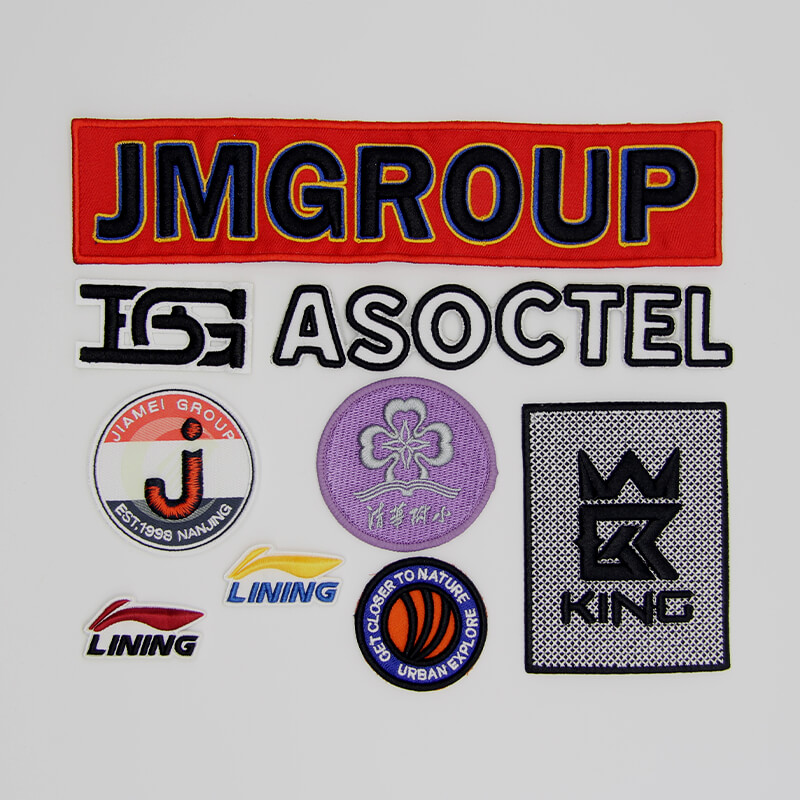How to Make Custom Embroidery Patches: Comprehensive Guide
Embroidery patches add a unique touch to clothing, bags, and accessories, allowing you to express your individuality and creativity. Creating custom patches at home is a rewarding and enjoyable craft that anyone can master with the right tools and techniques. In this comprehensive guide, we'll walk you through the process of making your own custom embroidery patches from start to finish.

Getting Started: Materials and Tools
Before diving into the embroidery process, gather the following materials and tools:
Fabric: Choose a sturdy fabric such as cotton twill or denim for your patches.
Embroidery Hoop: This will hold your fabric taut while you work.
Embroidery Thread: Select thread colors that complement your design.
Embroidery Needles: Use sharp needles suitable for embroidery work.
Scissors: Sharp scissors are essential for cutting fabric and thread.
Backing Material: Opt for iron-on backing or adhesive fabric to attach your patches.
Designing Your Patch
Start by sketching your patch design on paper or using design software. Keep the design simple and bold for best results. Once you have a finalized design, transfer it onto your fabric using a washable fabric marker or pencil.
Embroidery Techniques
There are several embroidery techniques you can use to bring your design to life:
Outline Stitch: Use the outline stitch to define the edges of your design.
Fill Stitch: Fill in larger areas of your design with the fill stitch, creating texture and depth.
Satin Stitch: The satin stitch is perfect for adding smooth, glossy details to your patches.
Additional reading:
How to Save Money When Buying custom women tanks
Wholesale Cheap Polo Shirts in Bulk
15 Best Down Jackets for 2024 [Lightweight & Packable]
How to Pick the Right Rug Size for Your Living Room
Real Fur vs. Faux (Fake) Fur: A Side-By-Side Comparison
10 Questions You Should to Know about custom flannel shirts
The 6 Best Slippers of 2024 | Reviews by Wirecutter
Experiment with different stitches and thread colors to achieve the desired effect.
Adding Details and Texture
Enhance your patches with additional details and texture:
Layering: Add dimension to your patches by layering different fabric pieces or stitching on embellishments.
Texture: Incorporate textured elements such as beads, sequins, or ribbons for added visual interest.
Finishing Touches
Once your embroidery is complete, trim any excess fabric and backing material. If using iron-on backing, carefully follow the instructions to adhere the backing to your patch securely.
FAQs
How long does it take to make a custom embroidery patch?
The time it takes to make a custom embroidery heat transfer label depends on the complexity of the design and your skill level. Simple patches can be completed in a few hours, while more intricate designs may take longer.
Can I use a regular sewing machine for embroidery?
While a regular sewing machine can be used for basic embroidery tasks, such as sewing patches onto garments, it may not offer the precision and versatility of a dedicated embroidery machine.
What is the best fabric for embroidery patches?
Cotton twill and denim are popular choices for embroidery patches due to their durability and stability. Choose a fabric with a tight weave to ensure clean, crisp embroidery.
Do I need to use a stabilizer when embroidering patches?
Using a stabilizer can help prevent puckering and distortion of your embroidery stitches, especially when working with stretchy or delicate fabrics.
Can I wash and iron custom embroidery patches?
Yes, most custom embroidery patches are washable and can be ironed on a low setting. However, be sure to follow any care instructions specific to the materials used in your patches.
Where can I find inspiration for embroidery patch designs?
Draw inspiration from a variety of sources, including nature, pop culture, and personal interests. Browse online forums, social media platforms, and embroidery blogs for ideas and inspiration.
Conclusion
Creating custom embroidery patches is a fun and rewarding craft that allows you to showcase your creativity and personal style. With the right materials, tools, and techniques, you can bring your designs to life and embellish clothing accessories, and more with unique and eye-catching patches.
Additional reading:Things to Consider when Buying Luggage Cases made ...
The Ultimate Guide To Finding The Perfect Evening Gown
Advantages And Disadvantages Of Wholesalers
10 Things to Consider When Buying Personalized Hawaiian Shirts
Top Quality Wholesale Baby Swaddle Sacks
Solving Common Issues When Buying Wholesale School Bags
When to Use custom down jackets?
Previous: None
Next: None
Related Articles
If you are interested in sending in a Guest Blogger Submission,welcome to write for us!




Comments
0